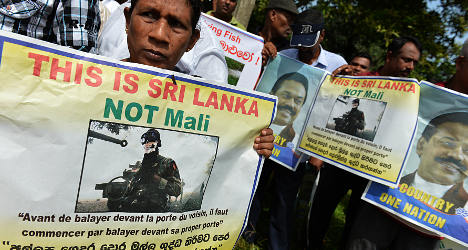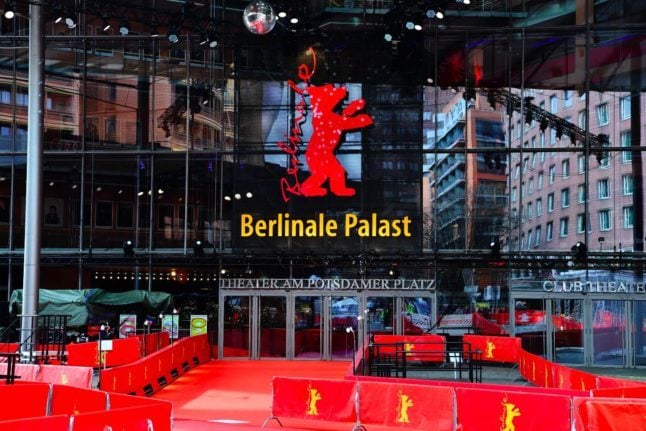Hundreds of government supporters protested outside the French embassy in Colombo Wednesday over a film festival which included a local movie considered by Sri Lanka's military to be insulting.
Demonstrators chanted anti-French slogans, denouncing the Sinhalese-language movie "Flying Fish" and the embassy for showing it at the French film festival organised to coincide with Bastille Day celebrations.
"If you sleep with dogs, you will wake up with fleas," said posters in faulty French. Others carried signs saying "This is Sri Lanka, not Mali" and "Before you sweep your neighbour's doorstep, sweep your own," in French.
The organisers of the protest accused France of supporting Sri Lanka's defeated Tamil rebels.
The defence ministry has said that the film, though approved by civilian censors for screening before an invited adult audience at the festival, was insulting to security forces.
The festival was stopped on Saturday by the management of its state-owned venue after the screening of "Flying Fish", a family drama set during the ethnic war in the island's northeast.
A defence ministry official told reporters the film had been "banned" in Sri Lanka and producers had no permission to use military-type uniforms in the movie.
However, the French embassy said it had clearance from the official censor, the Public Performance Board.
A local rights group, the Free Media Movement, said the defence ministry's action in effectively banning the festival amounted to "militarization" of the cinema and culture in Sri Lanka.
A group of independent film producers, artists and academics also condemned the government action.
"We stress it is a right of a citizen to watch the film and form their own opinions. It cannot be the prerogative of the government," the group said in a joint statement.
The festival was scheduled to end last Sunday but was terminated on Saturday morning.
The embassy said it had selected the 2011 movie with the support of Sri Lanka's culture ministry due to its international recognition in festivals in Asia and in France.
Sri Lanka is highly sensitive to criticism of its troops, who are facing international censure for alleged war crimes in the final stages of crushing Tamil separatists in 2009.
Authorities have banned several local productions, saying they were undermining military morale. The government has rejected allegations that its troops killed 40,000 civilians in the closing stages of the war.



 Please whitelist us to continue reading.
Please whitelist us to continue reading.
Member comments